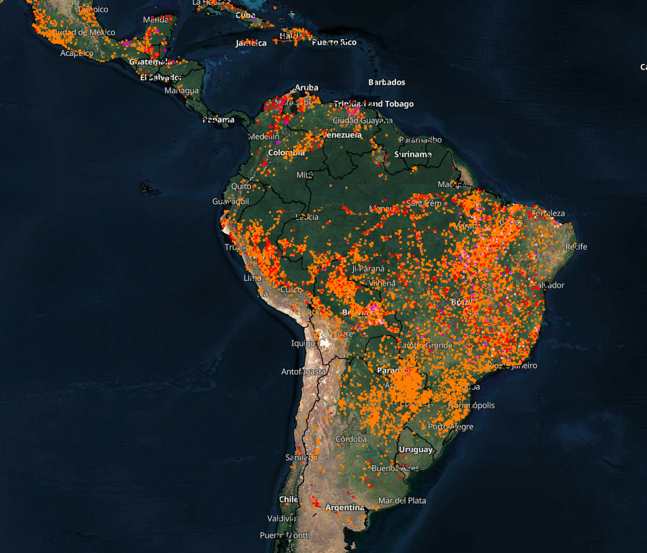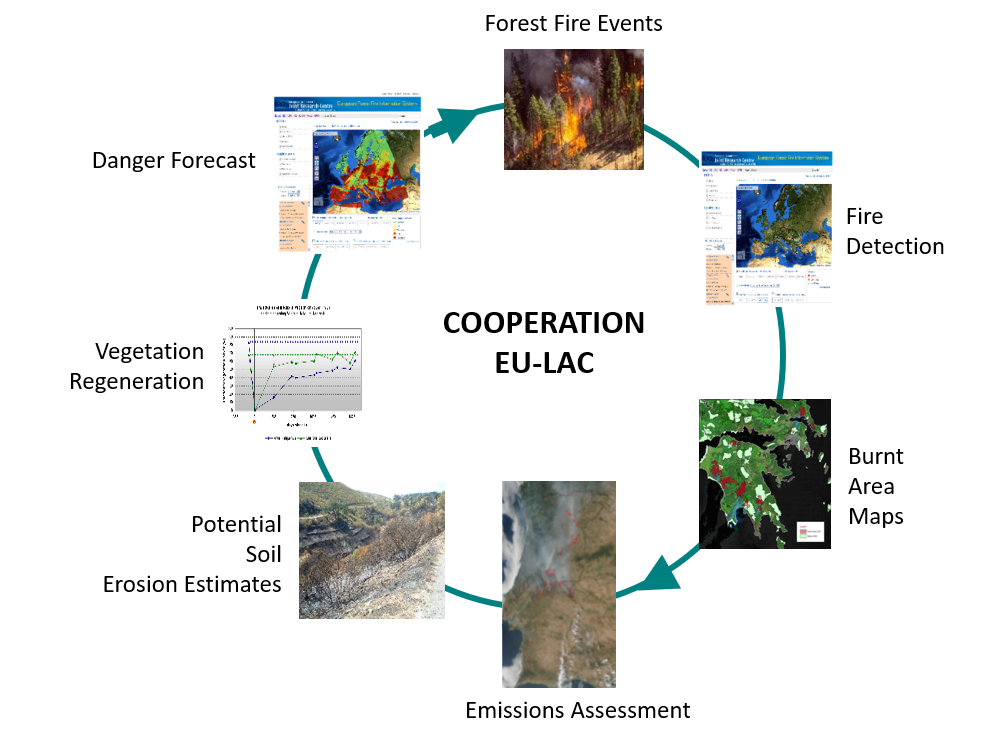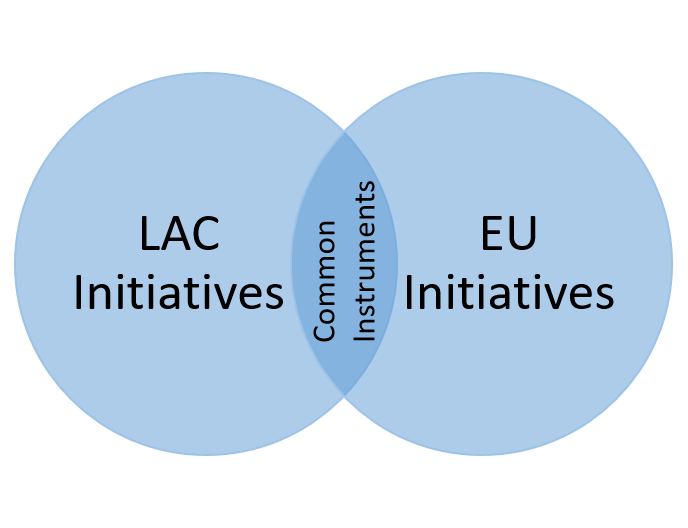The European Union (EU), the Amazonia, Latin America and the Caribbean (LAC) have a longstanding relationship based on common values and established on a legal framework with most of the 33 LAC countries through association and trade agreements, political and cooperation dialogues..
Support to Wildfire Management in the LAC region project has the overall objective of reducing the impact of wildfires in the Amazon and neighbouring countries in cooperation with LAC countries and international organizations. The project is implemented on a regional scale through two programmes:

The FPI programme was built upon the EU-LAC Policy Dialogue Support Facility (PDSF), an action funded and managed by the Foreign Policy Instruments (FPI) that aims to deepen the EU´s engagement with Latin America and the Caribbean (LAC) towards a strategic, targeted and comprehensive approach to managing forest fires in the region. This action builds on more than 20 years of collaboration in fire management and the development of fire information systems in the pan-European region. This initiative contributed to the establishment of the Group of Experts on Forest Fires in LAC (GEFF LAC) to facilitate the exchange of knowledge and best practices on forest fire management among project member countries. The continuity of this project in the Amazonia Plus Programme will be ensured through the International Partnerships (International Partnerships/INTPA) department.

The Amazonia Plus Programme is part of the Team Europe Initiative (TEI) to support the development of environmental measures in the Amazon region with the aim of reducing forest degradation and deforestation, minimising the environmental impact caused by fires, and integrating indigenous peoples and their knowledge of these issues into environmental management. The Joint European Research Centre/JRC will be responsible for scientific and academic cooperation activities related to the COPERNICUS programme.
Both initiatives seek to improve national capacities to prevent forest fires from a regional perspective, relying on EU best practices: the Global Wildfire Information System (GWIS) and the Group of Experts on Forest Fires in the Amazon, Latin America and the Caribbean (GEFF LAC). In these programmes, cooperation between country experts has been and is key to develop effective measures in all phases of fire management and monitoring.
Both regions collaborate in numerous international events to tackle global challenges, such as the United Nations (UN) in the context of the 2030 Agenda for Sustainable Development cooperation, or the fight against climate change through the Paris Agreement.
In 2020, more than 200,000 forest fires occurred in Latin America, destroying unique ecosystems such as the Amazon. In addition to this, data related to forest fires comes from diverse sources and collection methodologies. This results in low uniformity of criteria for its systematization and management.
The urgency of tackling this global problem in an efficient and harmonised manner lies in the ability to address it through instruments that enhance international collaboration between countries, which is a central element of the relationship between the European Union (EU), the Amazon, Latin America and the Caribbean (LAC) in this project.
In Europe, the national experts in wildfire management composed in 1998 the European Expert Group on Forest Fires (EGFF) to contribute to the development of the European Forest Fire Information System (EFFIS) as well as to the improvement of the fire prevention, preparedness and response in Europe, Middle East and North Africa. Given the sucess of the first EGFF in the pan-European region, one of the objectives was to replicate this initiative in the LAC region. Acting as knowledge exchange platform, GEFF LAC would use information from national systems, complemented with data from GWIS, to harmonise data and share learned practices on forest fire management with other countries.
Like the pan-European approach, the GEFF LAC members mainly represent national administrations of Environment, Agriculture or Civil Protection, and are nominated by the Ministries/Governments of each country. The role of the group is to advise, guide and support international collaboration and fire-related policy development in the region. The dynamics of the group and the clauses established for its correct articulation and operability are stipulated in the "Terms of Reference", agreed by the members of the GEFF LAC.


|
EFFIS is an information system that provides reliable, up-to date information on wildfires to the extended European region, the Middle East and North Africa. With more than 20 years of proven efficiency, EFFIS makes available historical, comparable and real-time information about the full fire cycle, including pre-fire conditions and post-fire damage assessment. |
The compatibility of GWIS with national systems in Latin America and the Caribbean makes it flexible and adaptable to specific methodologies and needs.Through the use of GWIS, the countries have access to historical and near real-time information on forest fires at regional, national and sub-national levels, facilitating the exchange of information and the possibility of comparing the fire situation in different countries. |